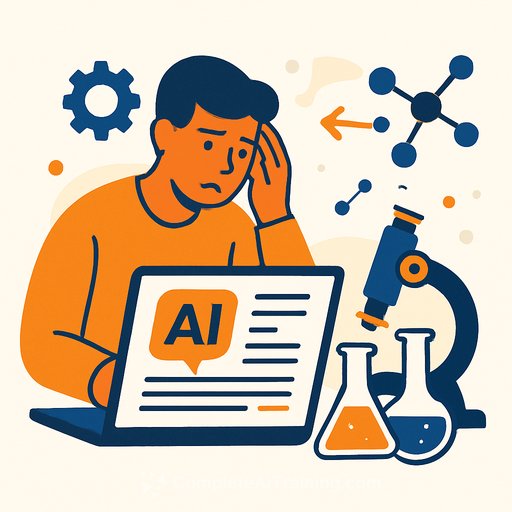The Role of AI in Scientific Writing: A Reflection
After more than two years of examining artificial intelligence in scientific writing, the initial expectations have shifted. Early on, the focus was on whether AI could genuinely support scientific communication without dismissing its risks. Now, the concerns are deeper and more nuanced.
AI tools produce competent prose, sometimes too well. But competence in writing doesn't always equate to what science truly needs. The core purpose of science isn’t just to publish papers or secure grants—it’s to create knowledge, develop technology, and improve treatments. Scientists, however, spend significant time on writing tasks that slow progress.
If AI can help overcome those bottlenecks, particularly for those who struggle with writing clarity, it offers real value. But the goal has always been thoughtful use, not blind reliance. The writing process often shapes scientific thinking, and that process risks being overlooked.
When Efficiency May Stall Progress
Computer scientists Sayash Kapoor and Arvind Narayanan highlight a paradox: while scientific publications have surged, actual progress has plateaued or slowed. AI’s promise to speed up writing may worsen this gap by accelerating output without enhancing the underlying quality.
Faster production is like adding lanes to a highway without fixing the toll booth causing traffic jams. The problem isn’t output volume but the deeper hurdles in scientific discovery. Funders, policymakers, and AI developers often miss this distinction, focusing on quantity rather than meaningful advancement.
Writing as a Thinking Tool
Writing is more than producing text. It’s a method to clarify ideas, identify gaps, and refine hypotheses. The struggle to express complex concepts often reveals new insights. Neuroscientist Eve Marder expressed this well:
“Writing is the medium that allows you to explain, for all time, your new discoveries. It should not be a chore, but an opportunity to share your excitement, and maybe your befuddlement. It allows each of us to add to and modify the conceptual frameworks that guide the way we understand our science and the world… It is not an accident that some of our best and most influential scientists write elegant and well-crafted papers.”
The discomfort of not knowing exactly how to say something signals being at the edge of understanding. This challenge often precedes breakthroughs. If AI removes that challenge too easily, it might dull this critical aspect of scientific thinking.
Practical Advice for Writers Using AI
Before turning to AI for writing help, pause to ask if you’re trying to clarify your thinking or just produce text. If the goal is to wrestle with ideas, preserve that struggle. If it’s about generating routine text, AI can save time.
The writers who thrive in an AI-rich environment will be those who recognize when writing is part of discovery, not just documentation. Producing passable manuscripts quickly is less valuable than deep, reflective work that pushes boundaries.
The Stakes for Science and Writing
Writing, flawed as it may be, remains one of the most powerful tools for thinking. Neuroscientist Henry Markram once said:
“I realized that I could write a high-profile research paper every year, but then what? I die, and there’s going to be a column on my grave with a list of beautiful papers.”
AI risks optimizing for polished papers without real advances in knowledge or treatments. The danger lies in mistaking efficiency for progress and removing necessary friction that fosters deeper insight.
Recognizing these tensions is itself progress. Questioning whether AI tools serve the true goals of science keeps the focus on meaningful work rather than just output.
Further Learning
For writers interested in exploring AI tools thoughtfully, consider courses that focus on practical, responsible AI use. Resources like Complete AI Training offer guidance on balancing technology with critical thinking.
AI-use statement: This article received editorial feedback from Anthropic’s Claude Sonnet 4 after drafting.
Your membership also unlocks:





